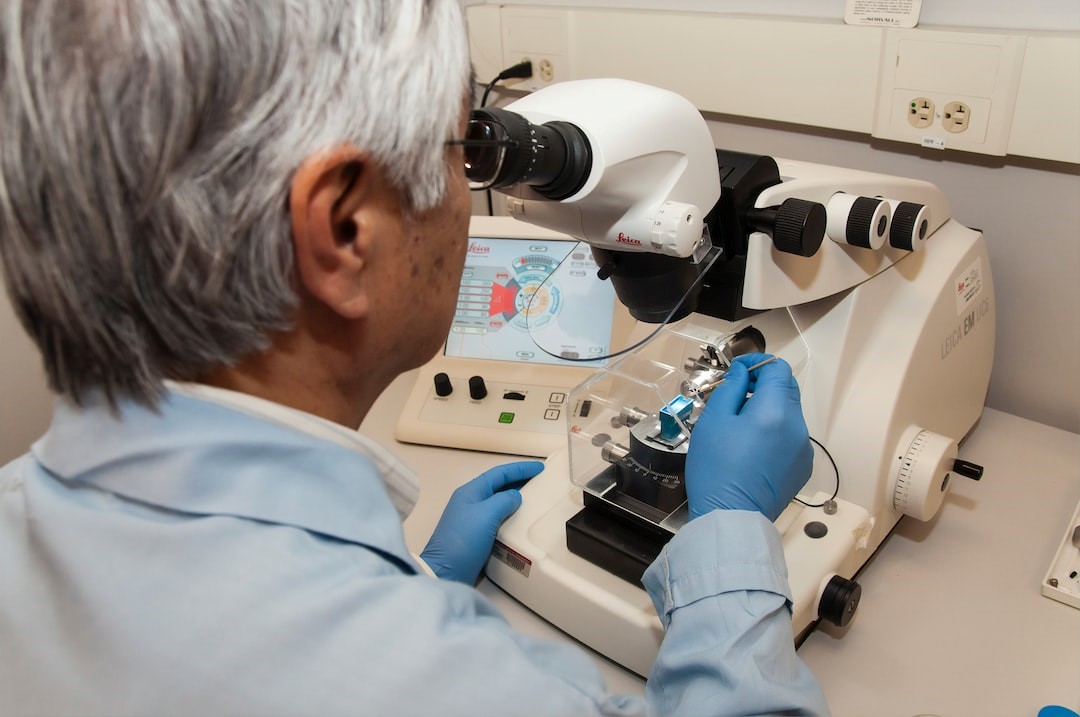Preventive Healthcare
What is Immunohistochemistry: Test, Cancer Detection, and Types
2814 Views
0

What is Immunohistochemistry?
Immunohistochemistry is a powerful microscopy-based technique combining immunological, biochemical, and anatomical techniques to image and identify discrete tissue components. This process uses appropriately labelled antibodies that bind to a target antigen in situ and allows you to visualize and document the localisation and high-resolution distribution of a specific cellular component within a cell.
History of Immunohistochemistry
Immunochemistry is a widely used staining technique that helps doctors detect certain infectious diseases and cancers easily. While the history of immunohistochemistry has been known since the 1930s, it was only in 1941 that you can find the first immunohistochemistry study being conducted. Since then, several scientists have adapted and improved this technique multiple times and made it a standard part of diagnostic testing as it can provide specific information.
Principle of Immunohistochemistry
Immunohistochemistry uses antibodies to detect antigens present in the tissue or blood of the individual. An antibody is a component that binds tightly to an antigen, a foreign body, or a toxin that causes an immune reaction. Although antibodies are produced in your body, a scientist will make specific antibodies for diagnostic immunohistochemistry staining in the laboratory.
In the immunohistochemistry procedure, a pathologist, i.e., a doctor who examines cells for diseases, will load a specific antibody with a dye. When this antibody binds to the antigen, it activates the dye creating the process of staining.
While the first known dye to be used in 1941 was Fluorescein isothiocyanate, which helped localise pneumococcal antigens in infected tissue, extensive research and expansion in this field led to the introduction of enzyme labels like peroxidase and alkaline phosphatase. Colloidal gold is another recent discovery in the field that has been used to identify immunohistochemical reactions that can be observed under a light or electron microscope.
Other types of labels used in immunochemistry include radioactive elements, which can be seen using a process called autoradiography.
Process of Immunohistochemistry
The immunohistochemistry procedure is divided into several steps that involve the study of the cells with and without a microscope, including:
Sample Preparation
The quality of the tissue sample plays a vital role in immunohistochemistry as the sample collection and preparation dictated the antigen exhibition and location. This process depends on whether you need to study cells or tissues. Adherent cells are usually grown on culture plates or chamber slides, while non-adherent called are bound to the coverslip using a chemical bond. Tissue samples are typically collected through biopsy, autopsy, surgery, and animal models. These are then thinly cut with a sharp knife or scissors to avoid extrusion damage to the cells before being fixed onto the slides.
Fixation
In this step, the sample is fixed onto a slide or the coverslip using solutions like acetone, alcohol, aldehyde, or non-aldehydes. This step helps to prevent postmortem changes and denaturing of the cells, which can hamper the study of these cells.
Staining and Observation
In the case of tissue samples, a pathologist will dip thin slices of the tissue in a staining solution, allowing them to observe and differentiate the cell types in the sample. The pathologist will then consider the type of cancer or disease suggested by initial testing and select one or more antibodies that will help give more insight into the cells present in the sample.
Understanding the Results
Upon completing the analysis, the pathologist will create a pathology report summarising their diagnosis along with other relevant information about the sample. The entire process takes a few days to be finalised. Diagnostic immunohistochemistry tests take longer than routine tests, and the length of time required for this process depends on the number of tests that need to be carried out, as well as the complexities of these tests.
What Does Immunohistochemistry Tell Us About Cancer?
Most pathologists will be able to tell you which cancer cells they see under a microscope without carrying out an immunohistochemical analysis. However, it can be challenging to identify specific types of cancers and other properties without the help of immunohistochemistry.
Doctors may suggest you carry out immunochemistry tests in some instances like:
- Breast cancer: To know whether or not the cells have HER2 progesterone or estrogen receptors, which affects the treatment and outlook of their patient.
- Lymphoma: With over 90 subtypes of lymphoma, immunohistochemistry can help determine the subtype and detect any gene alterations. It can also aid doctors in understanding how much the cancer has spread in the body.
- Stomach cancer: Immunohistochemistry is one of the most accurate staining techniques that detect the presence of H. pylori bacteria which is the leading cause of stomach cancer globally.
- Prostate cancer: Immunohistochemistry helps provide greater insight and specific information about prostate cancer cells, which can dictate the outlook and treatment options for the individual diagnosed with this disease.
- Lung cancer: Immunohistochemistry can help distinguish between small-cell and non-small-cell lung cancer. It is also necessary to diagnose uncommon types of lung cancer or cell mutation that allow the use of live-saving immunotherapy.
To Sum Up
Immunohistochemistry is a popular diagnostic technique as it offers specific test results, is more cost-effective, has a quick turnaround time, and uses a wide range of samples, from fresh and frozen to paraffin-embedded ones. Although not all cancers need to be further tested with immunohistochemistry, it is very helpful in detecting some types like lymphoma or Breast cancer.
Metropolis Healthcare provides quality diagnostic services, including a wide range of immunohistochemical tests. Check out the entire list of cancer-related testing options here.













1701259759.webp)









 WhatsApp
WhatsApp